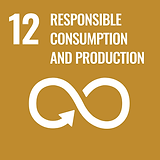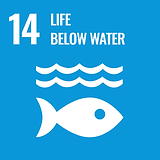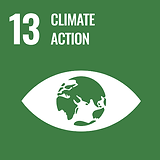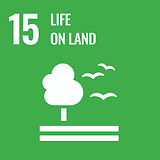

LIFT NETWORK
The inception of LIFT (Local and Indigenous Food Systems Transformation) Network can be
traced back to the Game changers Lab in 2021, where a diverse group of organisations from
Nigeria, Brazil, Kenya, Canada, and Fiji converged with a shared vision. United by a
commitment to strengthen Indigenous and local food systems, these organisations embarked on
a collaborative journey that transcended geographical boundaries.
Vision:
We envision a world where Indigenous and local communities thrive through resilient, regenerative, and culturally rich food systems. Our vision is grounded in the belief that sustainable, equitable, and locally
rooted approaches to food production are fundamental to the well-being of communities and the
planet.
Mission:
Our mission is to strengthen and amplify Indigenous and local food systems by fostering
collaboration, innovation, and knowledge exchange. We are committed to building a global
network that empowers communities to preserve their cultural heritage, promote sustainable
practices, and secure a nourishing future for generations to come.
Oceans Alive Program: Transforming Indigenous Food Systems for Traditional Fishing Communities in Kenya
Addressing Food Insecurity and Environmental Degradation in Coastal Kilifi County, Kenya:
The state of nutrition affairs
Coastal fishing communities in Kilifi County face a challenge of food insecurity and malnutrition:
-
73% poverty rate
-
67% of households are food insecurity,
-
55% of children under 5 years old are malnourished.
-
36% of children have stunted growth
-
39% of women do not meet their daily nutrition needs
The absence of leafy greens in diets is a key driver of high rates of malnutrition, particularly among children under the age of five. Malnutrition not only affects physical health but also cognitive development, which can have long-term consequences.
The cause of low vegetable consumption
Root causes of low vegetable consumption in Coastal Kilifi are due to inadequate production of sufficient leafy greens for balanced household nutrition because of :
-
Harsh, drought-prone, and arid climate
-
Compounded by shallow, nutrient-poor coral scrag soils,
-
Due to high settlement rate households have limited land for crops
-
Vegetable consumption is 20-25% below WHO standards
The causes of low fish consumption
Fish consumption has declined in recent years due to:
-
High population demand competing for limited supply
-
Too many fishers causing overfishing in the intertidal zones,
-
Unregulated illegal fishing practices damaging fish stocks and coral reefs
-
Inadequate fisheries protection capacity
-
Climate induced coral bleaching reducing traditional fisheries by 75%
Oceans Alive Solution Labs
Oceans Alive Solution Labs are dedicated to tackling the fundamental issues of food insecurity. Our approach centers on fostering sustainable and regenerative practices within the realms of fishing and agriculture. By doing so, we aim to not only bolster income generation but also enhance accessibility to nutritious food.
In addition to championing transformative practices, Oceans Alive Solution Labs actively empowers communities through micro grants. These grants serve as catalysts, nurturing the groundwork for communities to evolve into dynamic solution hubs. Our overarching goal is to facilitate long-term impact and community development, with a focus on empowering communities to drive positive change.”
SOLUTION LAB 1
Enhancing fish production through Traditional Marine Community Conservation Systems “Tengefu”

Tengefu – is the traditional historical name in Kiswahili for a community protected closed area.
Originally established under Village Elder Law as an indigenous system for enhancing fisheries production. An area within the marine environment set aside to recover due to degradation due to unsustainable fishing practices and the destruction of the coral cover. Degraded marine environments are often characterised by reduced fish catch and unbalanced ecosystems.
Our Approach to Tengefu:
-
Solution toolkits capturing evolution of 3 indigenous Tengefu
-
Outreach Strategy
-
Build beach management units (BMU) capacity to manage Tengefu
-
Support BMU to develop co-management area Plan (CMA)
-
Include closed areas (Tengefu) in CMA Plan as:
-
No take zones for biodiversity protection for ecotourism
-
No take zones for turtle nesting
-
Protected breeding zones to recharge fishery from spill-over
-
Semi-protected areas for coral gardening
-
Seasonal closure for octopus management
-
-
-
Conduct community and school video screening
Communities Supported -:
-
Kuruwitu Community Based Organisation
-
Bureni Community Based Organisation
Kuruwitu Tengefu Revitalized and Bureni Tengefu Revitalized
-
Baseline analysis of the Bureni Tengefu History and a Revitalization strategy developed.
-
20 Patrol guards trained and equipped to patrol Bureni and Kuruwitu Tengefu.
-
Tengefu boundaries demarcated.
-
Tengefu mangement documents developed.
-
Constitution upgradeed to include the Kuruwitu Co-managedd Area Plan
Impact:
Enhancing fish production through Traditional Marine Community Conservation Systems “Tengefu”
-
3 community marine conservation areas
-
400% increased fish biomass
-
15% spillover effect in the surrounding fisheries
-
30% recovery of coral reef
-
17% seagrass recovery
-
200 turtle nests protected
-
18,000 turtle hatchlings released
-
20,000 juvenile corals planted
-
3,000 students exposed to marine conservation
-
Self financing through ecotourism
-
12,000 Ha Kuruwitu CMA developed

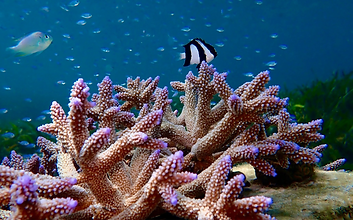

SOLUTION LAB 2
Coastal fishing Community Food Systems more Resilient Through Climate Smart Kitchen Gardening
Climate smart backyard kitchen gardening of indigenous leafy greens is a modern day adaptation of a traditional farming system. It empowers land poor coastal fishing communities to produce indigenous vegetables for kitchen use and sale. These systems are ;
-
Climate Resilient: Adaptable to climate
-
Carbon neutral: Recycle organic waste
-
Water neutral: Reuse HH waste water
-
Cash neutral: Save on HH budgets
-
Water Efficient: Use 50% less
Communities Supported -:
-
Timboni women group
-
Naimani women group
-
Vipingo women group
-
Inuka widows women group
-
Vidzo mgandini selfhelp group
-
Banda villa womens group
Impact:
Enhancing leafy greens consumption in Women and Youth through Climate Smart Backyard Kitchen Gardening
-
4 climate-smart systems developed
-
5 demo farms set up
-
600 households adopting the systems
-
6000 individual garden units established
-
Doubling household consumption of greens
-
1500 Ksh/week saved on HH budgets
-
3000 students exposed to the solutions
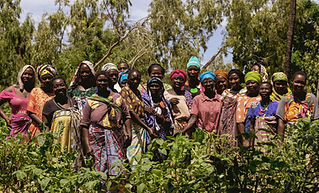
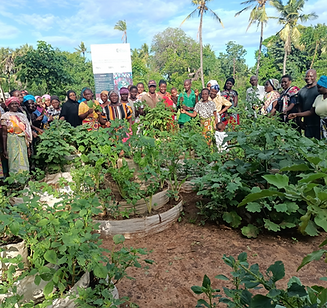
Check out this captivating article by Teddy Katono one of our Permaculture Outreach Assistant. A seed of hope story and journey, sharing the impacts our Permaculture project has on local coastal fishing communities.
Network Members:
Meli Bees Network (Brazil): Meli Bees Network's work in the Brazilian Amazon to support communities in developing regenerative practices is at the forefront of ecological preservation. Link https://www.meli-bees.org/
The Prairie Food System Vision Network (PFSVN) (Canada): The Prairie Food System Vision Network works with Indigenous Peoples, settlers and newcomers across the Prairie Provinces in Canada to identify, encourage, and support a range of solutions contributing to health, justice, sustainability, and food sovereignty in the Prairie biome. Link: https://prairiefoodsystemvision.org/
Foundation for Rural Integrated Enterprises & Development (FRIEND) (Fiji): FRIEND, based in Fiji, seeks to create a Foundation for Rural Integrated Enterprises & Development (FRIEND) using integrated approaches to tackle Social, Economic and Health challenges in communities around Fiji.. Link: https://friendfiji.com/
Oceans Alive Foundation (Kenya): Together with coastal communities, Oceans Alive share sustainable solutions which create a ripple effect to improve livelihoods along the Kenyan coast. Link: www.oceansalive.org
Village Farmers Initiative (Nigeria): Village Farmers Initiative (VFI) is a dedicated organization in Nigeria focused on achieving transformational food systems and climate adaptation through nature-positive food production, preservation of indigenous food heritages, landscape restoration and sustainable use of natural resources. Link: https://villagefarmers.org
Our solution labs target the following Sustainable Development Goals (SDG’s):
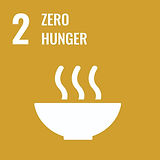
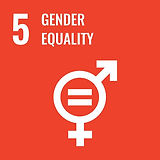
-
SDG 2 Zero Hunger- Increasing vegetable and fish consumption
-
SDG 5 Gender Equality - By targeting land poor women, youth and fishermen
-
SDG 12 Responsible Consumption and Production- Promoting sustainable solutions
-
SDG 13 Climate Action - Advocating climate smart solutions
-
SDG 14 Life Below Water- Engaging in a marine biodiversity conservation
-
SDG 15 Life on Land - Sustainable vegetable production
